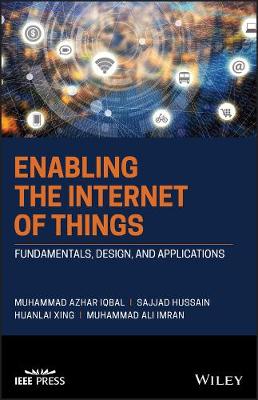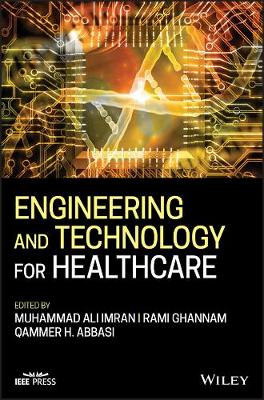Wiley - IEEE
2 total works
Enabling the Internet of Things - Fundamentals, Design, and Applications
by Muhammad A. Iqbal, Sajjad Hussain, Huanlai Xing, and Muhammad A. Imran
Published 7 December 2020
In the modern era, a plethora of things is being connected to each other using underlying network technologies with an aim to promote the paradigm of Internet of Things (IoT). IoT comprises of diversified technologies including pervasive computing, sensor technology, embedded systems, communication technologies, sensor networking, Internet protocols etc. IoT also benefits the economic growth of civilized societies.
The objective of this book is to provide a good starting point to understand the fundamentals and design of IoT systems. Moreover, it is an effort to partially fill the gap associated with the understanding of IoT concepts through programming in an abstract way. Topics covered include IoT fundamentals, IoT hardware/software components, IoT protocol stack, security, IoT applications and their implementations, challenges, their possible solutions and future directions. Moreover, social aspects of smart things are also discussed.
The objective of this book is to provide a good starting point to understand the fundamentals and design of IoT systems. Moreover, it is an effort to partially fill the gap associated with the understanding of IoT concepts through programming in an abstract way. Topics covered include IoT fundamentals, IoT hardware/software components, IoT protocol stack, security, IoT applications and their implementations, challenges, their possible solutions and future directions. Moreover, social aspects of smart things are also discussed.
Engineering and Technology for Healthcare
by Muhammad A. Imran, Rami Ghannam, and Qammer H. Abbasi
Published 24 November 2020
Innovation in healthcare is currently a "hot" topic. Innovation allows us to think differently, to take risks and to develop ideas that are far better than existing solutions. Currently, there is no single book that covers all topics related to microelectronics, sensors, data, system integration and healthcare technology assessment in one reference. This book aims to critically evaluate current state-of-the-art technologies and provide readers with insights into developing new solutions. With contributions from a fully international team of experts across electrical engineering and biomedical fields, the book discusses how advances in sensing technology, computer science, communications systems and proteomics/genomics are influencing healthcare technology today.

